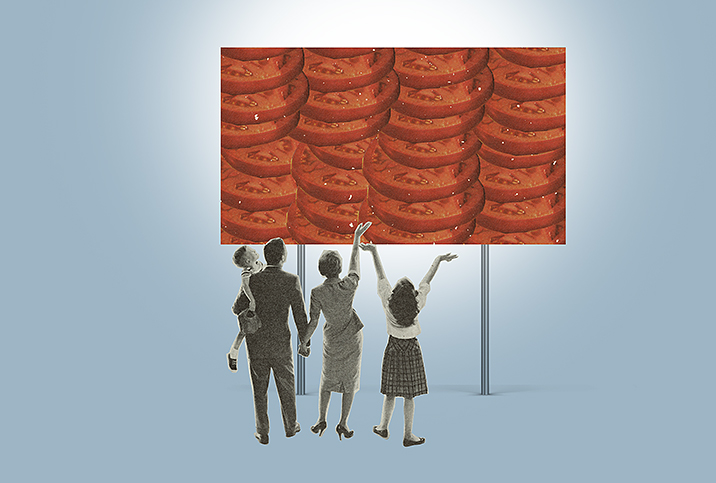Dieting Poses Serious Hidden Dangers

Going on a diet to lose weight may seem like the correct and healthy action to take. However, you may struggle to lose weight long term and you could end up damaging your health.
Dieting is defined as "any attempts in the name of weight loss, 'healthy eating' or body sculpting to deny your body of the essential, well-balanced nutrients and calories it needs to function to its fullest capacity," according to the National Eating Disorders Association.
Aggressive or extreme dieting that involves severely reducing caloric intake, as well as weight cycling or "yo-yo dieting"—the pattern of losing weight, regaining it, then dieting again—can be particularly dangerous.
Physical health problems linked to dieting include muscle loss, slowed metabolism, heart disease, electrolyte imbalance, nutrient deficiencies, high blood pressure, impaired bone health, fatigue, constipation and long-term weight gain.
"In terms of the long-term effects, it can change your metabolism," said Meghan Gillen, Ph.D., an associate professor of psychology at Penn State Abington who studies eating behavior. "People can gain more weight from the changing metabolism because metabolism can slow down if your body is not getting enough calories."
For women, restricting calories can lead to amenorrhea, or no longer having a period, Gillen explained. Some data indicates that the longer women go without food, the greater their risk of losing their menstrual cycle. This can lead to problems with hormones that are necessary for a woman's health.
"Those hormones can protect them against heart disease, osteoporosis, cognitive decline, so they serve a really important function," Gillen said. "When women don't have them, they're at a greater risk for those diseases long term."
The psychological impact of diets
Psychologically, people on diets may feel more anxious, depressed and irritable, Gillen said. They may experience feelings of social withdrawal, which can cut across all aspects of their lives. Other potential psychological effects of dieting include low self-esteem, difficulty concentrating, body dissatisfaction and a greater obsession with thinness.
"Ironically, when people try to restrict their food intake, they can become more focused on foods," Gillen noted. "They may, for example, become very focused on preparing food, going grocery shopping, watching the Food Network."
This situation can become cognitively preoccupying, taking attention away from important tasks.
"If you say, 'I'm not having cookies anymore,' then all you can think about is cookies," Gillen said. "So it kind of has this paradoxical effect."
The dangers of weight cycling
Weight cycling or yo-yo dieting is "very dangerous," according to Elyse Resch, a Beverly Hills, California-based nutrition therapist and author of "Intuitive Eating: A Revolutionary Anti-Diet Approach." Weight cycling is implicated in diabetes and cardiovascular problems and is pro-inflammatory: Weight fluctuations can increase inflammation in the body.
Shira Rosenbluth, a New York City-based licensed clinical social worker who specializes in eating disorders, pointed out that people who yo-yo diet also have higher cholesterol and blood pressure. Rosenbluth theorizes the health problems we associate with people in larger bodies are more than likely the result of yo-yo dieting.
"And the chronic stress that they have living in a world that is telling them their bodies are wrong for existing," Rosenbluth added. "Dieting is harmful biologically, emotionally, psychologically in every way."
Losing weight is the best predictor of yo-yo dieting, and there's no way of losing weight that will turn off the brain response that's trying to make you gain it back, said Sandra Aamodt, Ph.D., a neuroscientist in California and author of "Why Diets Make Us Fat: The Unintended Consequences of Our Obsession With Weight Loss." Aamodt said research indicates that even six years after losing weight, people's metabolism is still suppressed.
"Those mechanisms just basically never give up," she explained. "They will be trying to get you to gain that weight back forever."
The link between dieting and eating disorders
Every 62 minutes, at least one individual in the United States dies as a direct result of an eating disorder, according to the Eating Disorders Coalition.
"There's a very clear link between dieting and clinical eating disorders," Gillen said, noting that the former increases the risk of the latter.
Particularly of note are anorexia nervosa and bulimia nervosa. Anorexia is characterized by an obsession with losing weight by limiting food intake. Bulimia is also marked by caloric restriction and an obsessive desire to lose weight, with the addition of purging behaviors.
Among the many precursors of eating disorders, dieting is one of the strongest risk factors, Resch said. This is because dieting starts with a desire to lose weight, and if the restrictions of the diet are successful, the dieter may become more and more of a perfectionist in following them.
"They've lost a little bit of weight and they get excited by that and keep going and going," Resch explained. "Ultimately, they can end up with anorexia nervosa or they break their restriction and they start to binge. They're so scared of gaining weight that they end up purging, throwing up, using laxatives and diuretics, and overexercising. Diets just start the whole path."
Resch has been helping clients with eating disorders for nearly 40 years and estimates that 98 percent of the people she sees have been on some form of a diet before they progressed to having an eating disorder.
Studying eating disorders in the lab
Aamodt said when researchers want to make lab mice develop eating disorders, they put them on a calorie-restrictive diet until they lose weight and then let them gain the weight back. They repeat this process and then give the mice free access to junk food.
"That's how you create binge eating disorder in the lab," she said. "I will tell you it works really well on humans, too. That sounds a lot like most modern people's experience of yo-yo dieting, doesn't it? This is literally the best way that researchers have found to trigger binge eating disorder in other mammals, and we're telling people that it's healthy for them to do that to themselves?"
Rosenbluth pointed out that the $70 billion diet industry is invested in making people believe something is wrong with their bodies.
"The status quo is for women, in particular, but all people think that their bodies are something that needs to be fixed constantly and that we also equate beauty and success and perfection within us," Rosenbluth said. "And so, the way that dieting can be harmful is it's one of the biggest triggers to someone developing an eating disorder. We're talking about something that can kill and destroy people's lives."
What diets are especially dangerous?
Gillen said any diet that's severe in its approach, such as making drastic behavioral changes, cutting out multiple food groups or severely limiting calories, is probably going to be more harmful.
"Something more balanced that allows you to feel full is really important," Gillen said. "I think that's why diets fail: People don't feel full, they're still hungry, and you have to think about the quality of the food that you're eating and whether it fills you up or not."
The "more faddy and ridiculous" the diet, the more likely it is that you're missing out on essential nutrients, Aamodt said.
The first question you should ask is, 'How long did that study last?' If it's less than two years, you can put it straight in the trash can.
"The sad truth is there is no good diet," Aamodt said. "In general, all diets work about the same in the short term. Most people will lose weight over the first three to six months. All diets work equally poorly over the long term."
Most people gain the weight back within 12 months.
"It's not a coincidence that the vast majority of studies of weight loss only last three to six months," Aamodt said. "That's one tip I would give people for looking at the scientific studies if anybody says, 'This is scientifically proven to help you lose weight.' The first question you should ask is, 'How long did that study last?' If it's less than two years, you can put it straight in the trash can."
Resch said any diet that eliminates a certain nutrient or does not give you enough food to get all the nutrients you need is going to be dangerous for the body.
"Why do we fool around with that? We can't fool Mother Nature," she said. "We're made to eat a wide variety of foods. When you start messing with that formula, something negative is going to happen physiologically or psychologically."


















